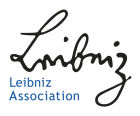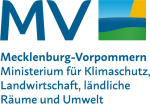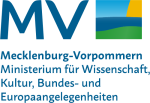The funding of the Leibniz ScienceCampus Phosphorus Research Rostock by the Leibniz Association ended on 31.03.2024. However, our network as the ScienceCampus Phosphorus Research Rostock (P-Campus) continues to exist. News about the P-Campus network can be found here.
The ScienceCampus Phosphorus Research Rostock
 Without major shifts in the global use of phosphorus (P) towards greater sustainability and efficiency there will soon be drastic decreases in its availability. The consequences of a worldwide limited supply of P are already being felt, in particular as dramatic increases in the price of P-based fertilizers. Together with a partially limited availability and the improper use of P inventories in soils, this can, in the long-term, jeopardize supplies of food to the world population and raw materials to the economy. Furthermore, inefficient P use may have significant environmental impacts: the entry of large amounts of unused phosphorus into matter cycles, for example via agricultural runoff, can lead to an over-fertilisation that disrupts the balance of the entire system. Consequently, strategies are urgently needed that through the efficient use of P will minimise the rapid depletion of P stores and close matter cycles.
Without major shifts in the global use of phosphorus (P) towards greater sustainability and efficiency there will soon be drastic decreases in its availability. The consequences of a worldwide limited supply of P are already being felt, in particular as dramatic increases in the price of P-based fertilizers. Together with a partially limited availability and the improper use of P inventories in soils, this can, in the long-term, jeopardize supplies of food to the world population and raw materials to the economy. Furthermore, inefficient P use may have significant environmental impacts: the entry of large amounts of unused phosphorus into matter cycles, for example via agricultural runoff, can lead to an over-fertilisation that disrupts the balance of the entire system. Consequently, strategies are urgently needed that through the efficient use of P will minimise the rapid depletion of P stores and close matter cycles.
This is the starting point of the ScienceCampus Phosphorus Research Rostock. By combining expert knowledge with a strong interdisciplinary orientation the five Leibniz Institutes together with the University of Rostock seek to find solutions and strategies to respond to these challenges. The ScienceCampus brings together the expertise of its members and thus provides the basis for a comprehensive investigation of the essential element phosphorus, its diverse chemical compounds and its modes of action in agriculture and the environment as well as in technical and industrial processes. Along with basic and applied research new technologies for phosphorus use will be developed and subsequently transferred to the economy.
The P-Campus was funded by the Leibniz Association as the Leibniz ScienceCampus Phosphorus Research Rostock in two funding periods from 2015 to March 31, 2024. In order to continue and expand the successful interdisciplinary research on the element P, applications are currently being prepared for a DFG Research Training Group and a Leibniz Research Alliance.



